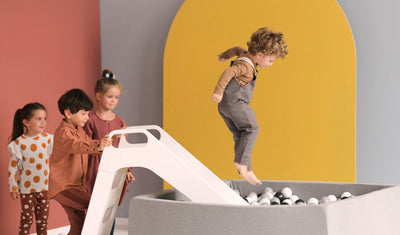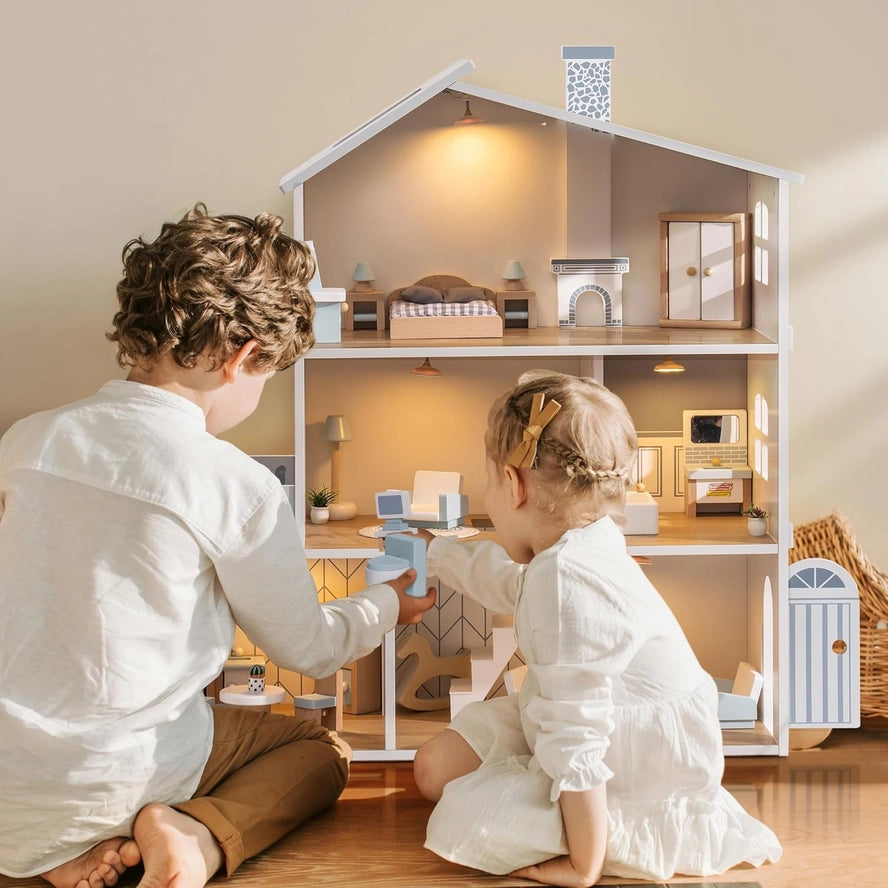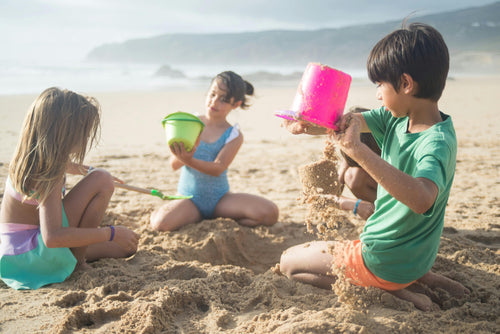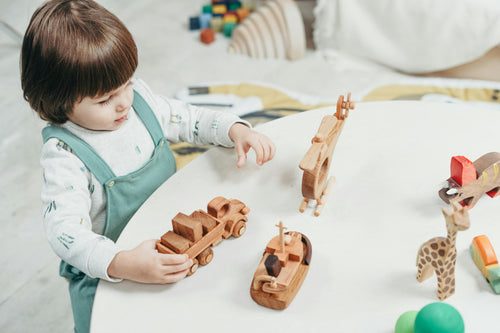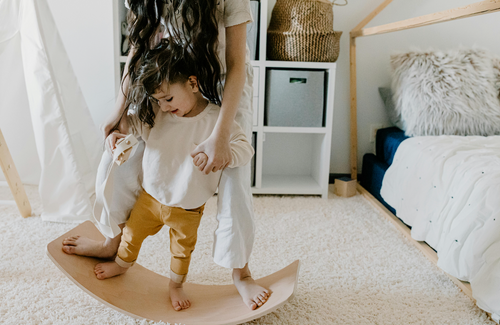
The Educational Benefits of Teepee Tents for Children's Play
In the world of children's play, teepee tents stand out for their ability to open up a world of imaginary adventures. These simple yet elegantly designed structures are not just a place to play; they are an invitation for children to explore and discover. In addition to their aesthetic appeal, teepees offer multiple educational benefits that contribute significantly to children's cognitive, social, and emotional development. This article explores how these play spaces can enrich the educational experience of young explorers.
Stimulation of imagination and creativity
Children's teepees serve as a catalyst for imagination, transforming a simple space into a multitude of fantastical worlds. Whether it's a jungle cabin, a spaceship, or a king's castle, the possibilities are endless.
Environment conducive to creativity:
- Personal space: A teepee provides a dedicated space where children can feel in control of their world. This personal space encourages children to decorate and personalize their teepee, which stimulates their creativity.
- Role-playing: In a teepee, children can create stories and scenarios, embodying different characters and roles. These role-playing activities are essential for developing abstract thinking and the ability to solve problems creatively.
Activities encouraged by the teepees:
- Reading and storytelling: A teepee can be the perfect setting for reading sessions. Children can create a cozy reading corner with cushions and books, which can help them develop a love of reading in a pleasant and stimulating environment.
- Arts and Crafts: Children can use their teepee as a workshop for arts and crafts projects, from drawing and painting to creating small crafts. This type of unstructured activity encourages freedom of expression and the development of artistic skills.
These activities not only entertain children but also play a crucial role in developing their imagination and ability to create new ideas. The teepee becomes a sanctuary where creative thinking is not only encouraged but also necessary.
Development of social skills
Teepees are not only solitary retreats for imaginative play, they can also become social hubs where children learn to interact, share, and collaborate with others.
Encouragement of cooperative play:
- Friendly interactions: The teepee can serve as a meeting place where children invite their friends to play. This encourages them to learn the basics of social interaction, such as taking turns, sharing toys, and negotiating game rules.
- Conflict Resolution: By playing together in a relatively small space, children also develop valuable conflict resolution and communication skills. They learn to express their needs and listen to those of others, which is essential for healthy relationships.
Group games:
- Structured activities: Parents and caregivers can organize group activities in the teepee, such as board games, group crafts, or storytelling sessions. These activities help strengthen children's sense of community and teamwork.
- Roles and Responsibilities: Assigning specific roles in teepee games or chores can teach children the importance of personal responsibility and teamwork.
These interactions in and around the teepee help children develop essential social skills that will serve them throughout their lives. By playing with others, they learn respect, patience, and empathy.
Benefits for autonomy and sense of security
The teepee provides a unique space where children can feel safe and secure while exploring their independence.
Creating a Personal Sanctuary:
- Sense of security: For many children, the teepee becomes a safe haven where they can retreat from the outside world and take time for themselves. This can be especially beneficial for children who feel overwhelmed by noisier or more chaotic environments.
- Autonomy: By having their own space, children learn to take care of their environment and make independent decisions about the organization and use of their teepee.
Promoting independence:
- Choice and creativity: By decorating and modifying their teepee, children exercise their autonomy and creativity. This freedom of choice supports their self-confidence and their ability to manage personal projects.
- Emotional management: The teepee can also serve as a place to calm emotions. Children learn to identify when they need to take a step back and use their space to regulate their feelings.
The teepee therefore offers an ideal framework for the development of autonomy in children, while providing them with a safe space where they can feel protected and supported.
Children's teepees are more than just toys or decorative items. They are powerful tools that promote emotional, social, and creative development. By incorporating a teepee into your child's play routine, you're providing them with a space where they can explore, dream, and grow. The educational benefits of teepees enrich the play experience and support each child's overall development.

